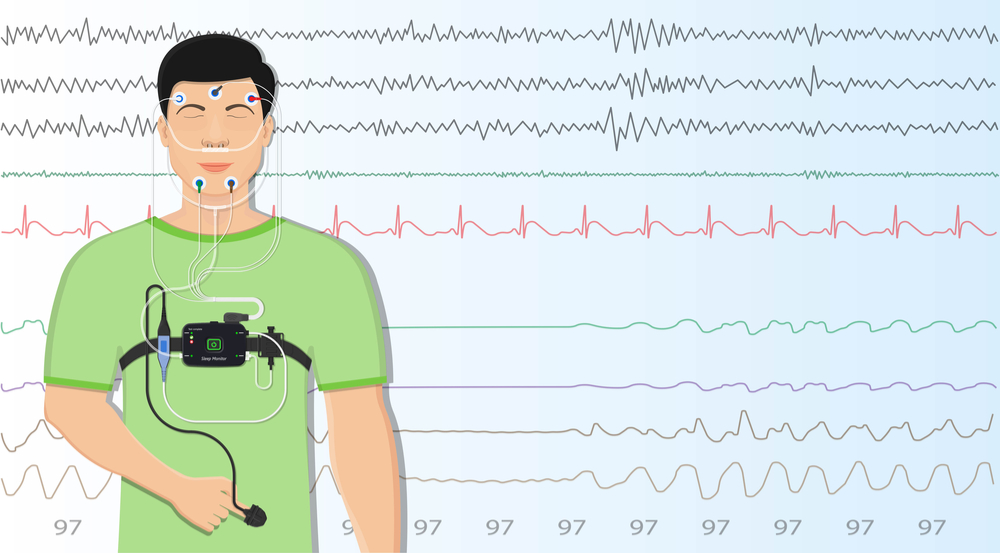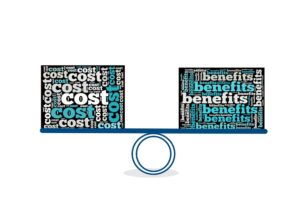
Changes in sleep medicine and technology continue to be rapid and progressive as we enter 2019. Sleep telemedicine is an exciting new trailblazer, but it's not the only space in sleep-related healthcare where technology can help specialists to serve more patients and achieve better outcomes.
Those sleep center professionals who have embraced 21st century technologies are setting newer—and some might say higher—standards for patient diagnostics by contracting with sleep scoring services to more efficiently manage the data collection of a burgeoning population of patients with sleep disorders.
Sleep Study Scoring: From past to present to future
For decades, the scoring of sleep studies has been traditionally done in-house by technologists (the earliest of these hand-scored them with ink on paper).
Programs are now entirely digital and include the convenience of autoscoring features, but these are of somewhat limited use given the complexity of health issues among today's patients.
Many of today's technologists still score "on the fly" (during the study) or after the study is completed (first thing in the morning), or these studies are handed to a separate day tech to score. For patients with simple sleep disorders and little to no comorbidities, this process can be effective. But is it efficient?
The 21st century patient population and the changing sleep center landscape
The new profile of sleep-disordered patients—who in 2019 are older and suffer from multiple comorbidities—means that scoring during live studies can be compromised. These patients require more care, often one on one in the patient space, leaving study data unattended in the laboratory.
Add to this the demands of a backlogged patient schedule, with some labs running 3:1 patient-to-technologist ratios, and one can see how the sleep specialist workflow has never been more demanding. Not only must they provide pristine hookups, comprehensive patient education and specialized care for those with special needs, but they also must perform accurate scoring duties, which require dedicated focus and time.
While some highly experienced sleep technologists harbor the necessary skills to perform stellar studies that merge both high-quality patient care and reliable scoring, many struggle to balance these dual demands, and inter-scorer reliability may suffer a decline.
What's more, the US Bureau of Labor and Statistics and the CMS both predict a shortage of healthcare workers for 90 percent of all healthcare facilities by 2030, thanks to the influx of older patients and more chronically ill younger patients.
Pressure on sleep testing facilities also comes from: new Medicare requirements that demand faster turnaround times from physicians; increased awareness of sleep disorders among the general population which has resulted in a consequent rise in demand for in-lab tests; and trends toward lower reimbursements while technical and operational costs continue to rise.
Location of services is also problematic. Labs in remote areas, where there are fewer physicians and techs, or where there may be more geographical barriers for providing and receiving care, may find that hiring scoring services is the only way to keep businesses operating smoothly.
And just like many healthcare service facilities, there may be times when services need to be cut temporarily; using a scoring service can take the burden off the existing staff without reducing the numbers of patients seen during any given period.

New problems call for new problem solving
Fortunately, technology has advanced to make it possible to remotely score studies. Passing these tasks on to a separate scoring service outside the lab makes sense for many, as this part of the sleep diagnostic process is perhaps the most standardized of all the tasks performed in the sleep lab.
Outsourcing Sleep Study Scoring: the process
How does remote scoring work? Study data is sent to a scoring service per preset arrangements. The transfer takes place using HIPAA compliant Internet transfer protocols, hardware and software to protect patient privacy.
Most sleep data and results in this centralized system are retrievable and ready for analysis for all parties involved in the sleep study—the night tech, the sleep physician, the lab director, the patient, insurance payers, the referring physician.
Studies are scored following facility protocols and returned within a pre-established time frame.
Much of the quantitative data collected in an overnight study (in example, leg movement data) is well suited for scoring by a remote tech, who simply validates or invalidates as necessary.
But qualitative data, like that measured in EEG, can also be very accurately scored by a remote tech. In fact, some sleep facilities believe that outsourced scoring services might provide results that are superior to those scored in the lab. After all, the scorer is focused entirely on the data scoring, without the distractions of patient care and other aspects of workflow managed by the night tech.
Keep in mind, most scoring services now require their techs to be registered technologists with at least five years of scoring experience and to meet minimum standards for HIPAA security. Quality assurance is a major goal for scoring service businesses, which generally only hire scorers with high ratings in inter-scorer reliability.
Outsourcing Sleep Study Scoring: the benefits
Even when a lab has a full staff of high-level sleep technologists with scoring skills, it may still wish to consider the benefits that come from outsourcing scoring tasks, which have been shown to:
- Save labs money on a per-study basis, as individual off-site scorers are generally more affordable
- Save techs time so they can focus on other critical parts of their workflow like patient follow-up and educating
- Allow for business expansion because they free up income from the burdens of overhead expenses and benefits payouts
- Lead to more accurate and consistent study results and improved inter-scorer reliability
- Ease turnaround times on studies to keep the lab schedule moving forward
- Make it easier for physicians to produce study interpretations as they have direct access to the scored studies even while traveling to conferences or working offsite
- Result in improved care for a lab's more complicated patients as well as improved patient outcomes, as more time can be freed to follow up with patients and provide additional education and support
- Provide a safety blanket for labs where patient loads may ebb and flow or are otherwise impacted by limited live access to sleep physicians or due to geographic concerns
How to make it work
Word of mouth, as with any other service-oriented business, is still the best approach to locating the scoring service company best suited to a lab's specific needs. Remember, they don't need to be located in the same region as the lab. What's more important is that they use high-quality technological systems that have good IT support and a reputation for reliable, consistent and accurate turnaround.
Also, planning to use a scoring service requires some decision making. For instance, will study outsourcing be a temporary measure designed to handle backlogs, or will it be used as the go-to scoring procedure?
It makes sense, in either case, to establish a contract with a scoring service well in advance of sudden increases in sleep studies to keep costs down; rush cases will cost more in the long run.
If a clinic isn't sure it will always need a regular off-site scoring tech, it's still a good idea to keep one on for regular work in order to develop a working relationship. A good scoring tech is worth their weight in gold and the smart lab director will always have access to one just in case.
As one of the nation's premier providers of outsourced PSG scoring services, Sleep Architect is proud of its long history of expertise in this field, which dates back to the days of paper-and-pen polysomnograms.
Our reputation is important to us. We only use RPSGTs who undergo monthly inter-scorer reliability testing to ensure studies are scored to the high standards of the American Academy of Sleep Medicine.
Article by Kevin Asp, CRT, RPSGT
President, inboundMed
Ready to find out more?
Learn more about how Sleep Architect can help you with your sleep study scoring needs!


Since each lab uses a different software. Do they have to pay for a new score key or something along this lines, or is their a way for the sleep center to get around that?
Thanks for your question, Lance. We can use our own software or use a secure connection to the client’s server or computer on their site. It is dependent on the client’s needs.